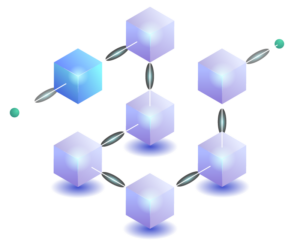UNIVERSITY OF NICOSIA/ INSTITUTE FOR THE FUTURE (CYPRUS)
With the introduction of the first Master’s degree in Digital Currencies and Blockchain technology globally in 2014, the University of Nicosia entered the blockchain industry early on. Once they realized there was a need for safe, self-verifiable credentials, it became abundantly evident that blockchain technology was the optimal option.
As a system, education has benefited from the Industrial Revolution and shaped the following generation of citizens and workers through the structure, discipline, and lessons taught in schools. However, as the world evolved, it became challenging to create the educational experience for the student living in a more globalized and quickly evolving information era since the internet age has grown and evolved faster than traditions could keep up.
Credentialing or accreditation has been one of the obstacles to bringing about a significant paradigm shift to better education. What guarantees the authenticity of documents amidst the growing market in forged credentials and the vulnerability of certification documents in the face of man-made and natural disasters?
UNIC (University of Nicosia) became the first institution in the world to experiment with the deployment of blockchain in the issuance of academic credentials, in 2014. They were certain that there was no other technology that was safer or more secure, and specifically, there was no blockchain that was safer than the Bitcoin blockchain.
“We had to find a solution with certificates that would be vendor-independent and without a central point of potential attack/hacking, and that would outlive the issuing institution itself,” stated block.co CEO, Alexis Nicolaou.
Open, public, and permission less blockchains are best for the security and decentralization of data managed by a peer-to-peer network. An open, public blockchain allows for operational transparency and let users examine and verify data without anyone’s consent. Using blockchain technology ensures that the data shared is verified and accepted to be correct by consensus, hence it cannot be modified without general agreement. When we allow businesses and organizations to store and manage sensitive data, we are also increasing the risk that the data can be manipulated and changed without our consent. Blockchain does not allow that as it is immutable in nature and an append-only, distributed ledger.
Block.co’s platform offered the only truly decentralized solution to secure PDF documents from fraud without intermediaries. It also transforms the way organizations leverage open-source vPDF technology in the issuance, revocation, and validation of self-contained and self-verifiable documents. The documents generated are entirely self-contained and self-verifiable, which means they include both the blockchain proof and data inside the document itself without requiring the installation of extra software or apps. As a result, the open-source validator may be used to independently confirm the legitimacy of the document, assuring vendor independence, and making the solution genuinely decentralized and timeless.
With the emergence and development of Non-Fungible Tokens, (NFTs), block.co took it a step further and created a whole new technology, named non-transferrable NFTs (or Soul bound Tokens as per Vitalik Buterin’s article in May 2022). Back in November 2021, we were able to pinpoint a new utility for NFTs, to serve as credentials. As diplomas or certificates are not meant to be exchanged or sold, they are unique to each owner. Simply explained, NFTs are a means of demonstrating the legitimacy of a digital asset. An asset could be an image or video or some other file, in this case it was a digital copy of the course certificate. Once the students completed their course and opted for the NFT certificate, it was minted on the block.co platform and an automated email was sent to the recipients with a link to claim the NFT credential.
Our platform allowed the streamlining of the process, by minting NFTs for course certificates. Students no longer needed to worry about the verification and the validity of their academic NFT credentials because they and their potential future employers, could verify the validity of their academic achievements by inspecting the wallet address of the individual, or the NFT collection in whole.
Education as a system has the potential to become collectable and sovereign in nature. These NFTs represent academic tokens, of experiences and courses collected by students of the new era.
However, it is not solely academia that could benefit from the reliable credential authentication that blockchain technology offered. block.co was born to take the initial learnings and expand the product beyond education to other industries as well as government – indeed to any organization or sector that issued digital documents whose authenticity and immutability they wished to secure.




